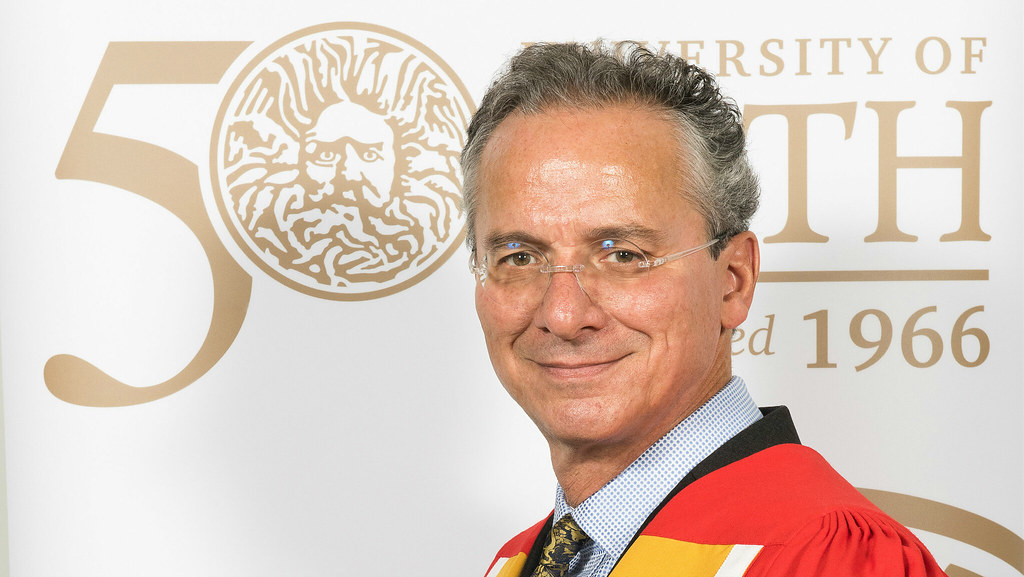Vice-Chancellor, it is my pleasure to introduce Professor Scott Barrett, who has made important contributions to the understanding of international cooperation, particularly related to the environment.
Born in Boston, Massachusetts, Scott received a BS, summa cum laude, from the University of Massachusetts, Amherst, in 1979, a MA from the University of British Columbia in 1983 and a PhD from the London School of Economics in 1989. He held appointments at the London Business School from 1988 to 1999 and at the Johns Hopkins University School of Advanced International Studies in Washington, DC, from 1999 to 2009. In 2009, he became the first Lenfest-Earth Institute Professor of Natural Resource Economics at Columbia University in New York City.
Scott has been a visiting scholar at Harvard, Yale, Princeton and Université Paris 1 Panthéon-Sorbonne and is now a Visiting Fellow at the Institute for Advanced Study in Berlin. Previously, he was Chair of the Advisory Board of the Beijer Institute in the Royal Swedish Academy of Sciences.
His first paper on international environmental agreements, written in 1989 but not published until 1994, is still regarded as the seminal paper on the subject. Its surprising and provocative conclusion was that the world can adopt a treaty in which all countries participate and behave in their collective interests but only when these countries would have behaved in nearly the same way had they acted only out of self interest. When countries’ behaviour needs to change dramatically in order to advance the collective interest, treaties fail to secure much participation. Scott called this the paradox of cooperation. Scott’s paper earned him the Erik Kempe Prize in 1996 (given by the European Association of Environmental and Resource Economists) and the Publication of Enduring Quality Award in 2016 (given by the Association of Environmental and Resource Economists).
After making many further contributions on this topic, Scott wrote his first book, Environment and Statecraft: The Strategy of Environmental Treaty-Making, published by Oxford University Press in 2003. This showed that a treaty called the Montreal Protocol, which was adopted to protect the ozone layer, really did support cooperation but that, to achieve the same degree of cooperation for issues like climate change would be more difficult.
Even before finishing this book, Scott became curious about other instances of international cooperation, such as the eradication of smallpox. Scott wrote a paper offering an explanation for this success, in this case showing that a treaty was not needed because each country would only be willing to act if assured that all other countries were sure to act. This discovery and others provided the material for Scott’s second book, Why Cooperate? The Incentive to Supply Global Public Goods, published by Oxford University Press in 2007.
Throughout his career, Scott‘s abiding interest has been with how to make cooperation more effective in the real world and, in this capacity, he has advised a number of organisations, including the United Nations, the European Commission, the World Bank, and the International Task Force on Global Public Goods. He has also been a lead author of the Intergovernmental Panel on Climate Change.
Personally, I think that the most striking feature of Scott is his amazing gift to spot important research questions much earlier than others do and to provide answers which can also be communicated to scholars outside economics. Even in a rather mathematical discipline, he has managed to publish papers which use simple techniques because people care about his topics and about what he has to say.
Vice-Chancellor, I present to you Professor Scott Barrett, who is eminently worthy of the degree of Doctor of Laws, honoris causa.
